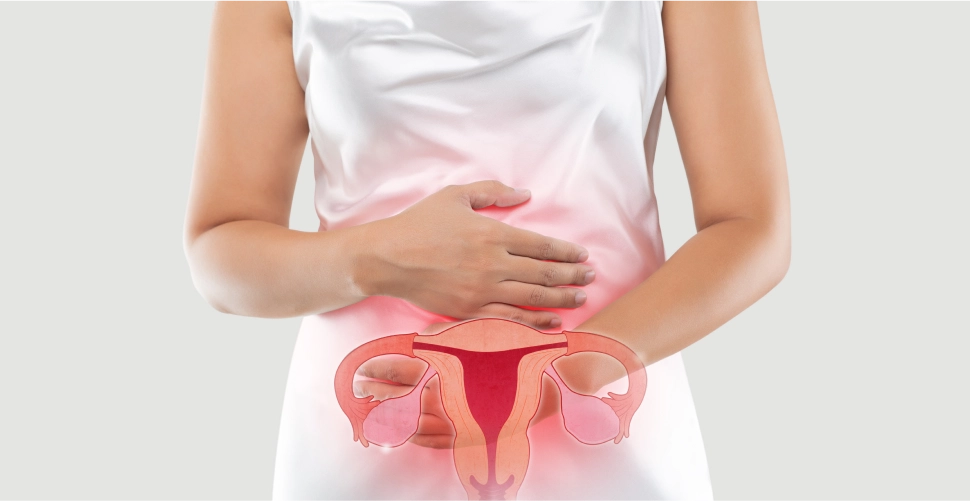
Endometriosis is a complex, often misunderstood condition that can weave its way into every facet of life, from daily activities to dreams of starting a family. If you’re navigating through the discomfort and uncertainties of endometriosis, understanding its various stages can be an important first step toward reclaiming your well-being and health.
What is Endometriosis?
The exact causes of endometriosis are still being studied, but it could stem from a mix of hormonal imbalances, genetic predisposition, unusual immune responses, or even retrograde menstruation, where menstrual blood flows back into the pelvic cavity. These factors suggest that the body’s natural processes are somehow disrupted, leading to the growth of tissue where it shouldn’t be.
Diagnosing endometriosis involves a combination of methods. Initially, your holistic health specialist will review your medical history and perform a thorough physical examination, including a pelvic exam to check for abnormalities. Imaging tests such as ultrasounds or MRIs help visualize the extent of the tissue growth. Often, a definitive diagnosis requires a laparoscopy, a minimally invasive procedure where a small camera is inserted through a tiny incision in the abdomen to observe and possibly take samples of the affected tissue.

Stages of Endometriosis
Stage 1: Minimal
Stage 2: Mild
Stage 3: Moderate
Stage 4: Severe
If you think you might have endometriosis, or if you’re experiencing pelvic pain and aren’t sure why, it’s a good idea to talk to a holistic health specialist. Early intervention can help manage symptoms and improve your quality of life.
Endometriosis Symptoms
- Infertility
- Pelvic pain
- Painful menstrual periods (dysmenorrhea, which can sometimes cause severe pain)
- Pain during intercourse (dyspareunia)
- Excessive menstrual bleeding (menorrhagia)
- Gastrointestinal issues (such as diarrhea, issues with bowel movements, constipation, or bloating)
- Fatigue
- Lower back pain
Endometriosis & Fertility
- Endometrial tissue can block fallopian tubes, preventing sperm from reaching the egg
- Inflammatory conditions created by endometriosis can damage sperm or egg
- The formation of adhesions can distort pelvic anatomy, affecting the function of reproductive organs
- Endometriosis can impact the quality of the egg and the environment of the uterus, making implantation difficult.

Holistic Treatment For Endometriosis: What To Expect
During Your Initial Consultation
Her goal is to find and address the root cause of your endometriosis using diagnostic methods, which drives further testing so that Dr. Yuabova Marina, DNP, APRN, Holistic Specialist, knows where to apply the specific testing that is needed. Once the cause of your endometriosis is determined, medical evidence will be collected in the form of a complete blood panel, and treatment can begin.
During Your Follow-Up Appointments
Treatment can include:
- A functional blood panel to assess hormone levels and overall body function
- Nutritional therapy (oral or IV)
- Neural therapy
- Herbs and nutritional supplements
- Minerals
- Peptides / amino acid therapy
- Hormone therapy
- Dietary modifications
- Coaching and education
Benefits of Endometriosis Treatment with a Holistic Health Specialist
By receiving treatment for endometriosis from a holistic health specialist, you can expect the following benefits:
- Customized approach to your treatment plan
- Whole-body wellness that goes beyond symptom treatment
- Natural therapies that work in harmony with your body
- Proactive approach to treatment, rather than reactive
- Emotional support
- Hormone balance
- Stress reduction
- Improved overall quality of life
By integrating various methods such as dietary changes, stress management techniques, and medical-grade supplements, holistic treatments can restore overall balance and health. This can lead to fewer side effects compared to pharmaceutical treatments, which often focus on symptom management alone.
Holistic methods also emphasize the importance of a personalized treatment plan, tailored to your unique health needs and lifestyle, potentially leading to more sustainable and effective management of endometriosis.
Can Endometriosis Be Completely Cured?
By targeting these root causes through a comprehensive treatment plan that can include nutrition, lifestyle adjustments, and alternative therapies, it’s possible to alleviate the condition significantly. While a complete “cure” is not guaranteed for everyone, many individuals experience substantial relief and improved quality of life through these tailored interventions.